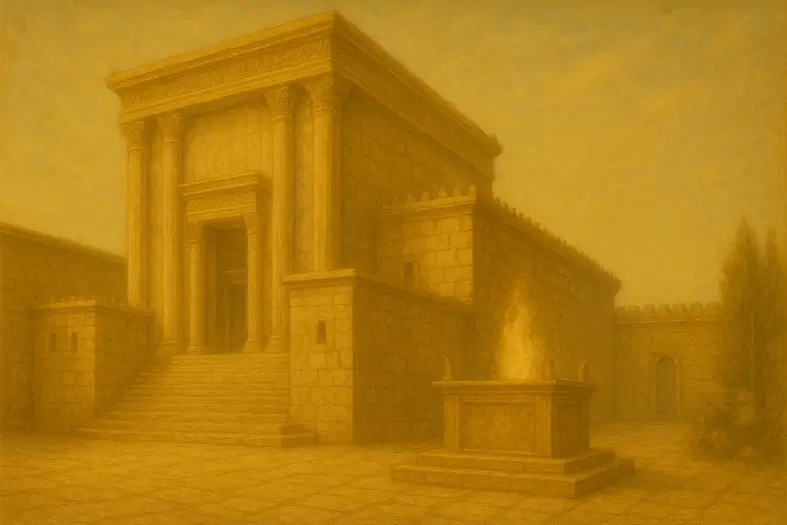


Sacrificial animals must be unblemished; only whole and perfect animals may be brought upon the altar.
This mitzvah commands that only animals without physical defects may be offered as sacrifices in the Temple. The Torah specifies that blemishes such as blindness, lameness, or deformities disqualify an animal from being fit for korbanot.
Rambam codifies this rule to ensure that the avodah is performed with the highest standards of dignity. Sefer HaChinuch explains that sacrifices must symbolize completeness and perfection, reflecting our desire to serve Hashem with our best. A blemished offering would dishonor the sanctity of the altar and suggest indifference or disrespect.
The Talmud describes various categories of blemishes that invalidate an animal. Ramban interprets that this mitzvah teaches the principle that one must bring the choicest and most honorable gifts before Hashem. The requirement embodies reverence, teaching that Divine service is not casual but must radiate respect, awe, and love.
Commentary & Classical Explanation:


Represents the concept of spiritual intentionality, purity, and sanctity—set apart for a higher purpose.
Concerns the Beit HaMikdash, korbanot (offerings), and priestly service.
Signifies awe and reverence toward Hashem—living with awareness of His greatness and presence.
Mitzvot that uphold fairness, honesty, and moral responsibility. Justice is kindness structured — ensuring that society reflects G-d’s order through truth, equity, and accountability.
Mitzvot that define and deepen the relationship between a person and their Creator. These include commandments involving belief, prayer, Shabbat, festivals, sacrifices, and personal holiness — expressions of devotion rooted in divine connection.

Dive into mitzvos, prayer, and Torah study—each section curated to help you learn, reflect, and live with intention. New insights are added regularly, creating an evolving space for spiritual growth.

Explore the 613 mitzvos and uncover the meaning behind each one. Discover practical ways to integrate them into your daily life with insights, sources, and guided reflection.

Learn the structure, depth, and spiritual intent behind Jewish prayer. Dive into morning blessings, Shema, Amidah, and more—with tools to enrich your daily connection.

Each week’s parsha offers timeless wisdom and modern relevance. Explore summaries, key themes, and mitzvah connections to deepen your understanding of the Torah cycle.